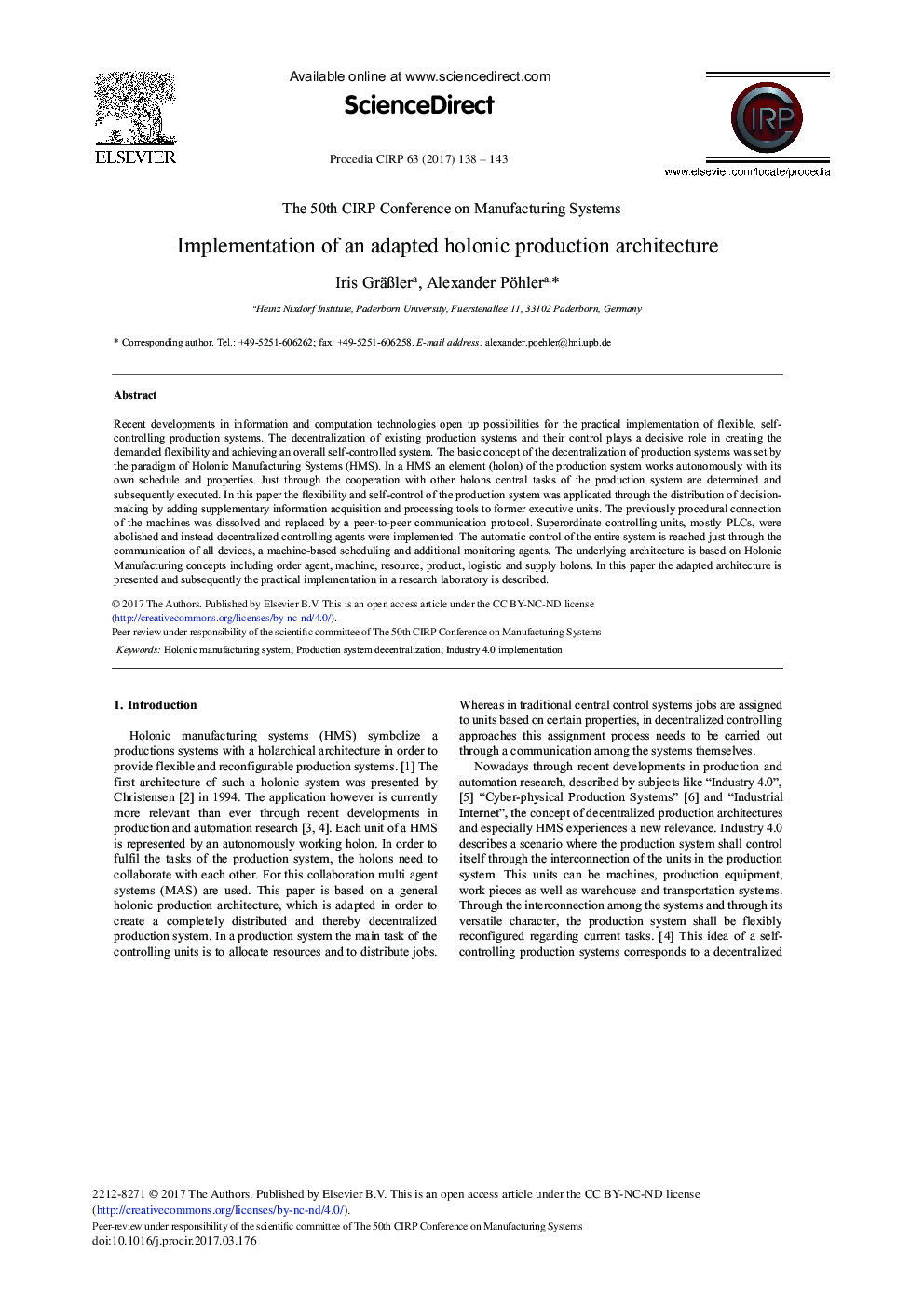| Article ID | Journal | Published Year | Pages | File Type |
|---|---|---|---|---|
| 5470137 | Procedia CIRP | 2017 | 6 Pages |
Abstract
Recent developments in information and computation technologies open up possibilities for the practical implementation of flexible, self-controlling production systems. The decentralization of existing production systems and their control plays a decisive role in creating the demanded flexibility and achieving an overall self-controlled system. The basic concept of the decentralization of production systems was set by the paradigm of Holonic Manufacturing Systems (HMS). In a HMS an element (holon) of the production system works autonomously with its own schedule and properties. Just through the cooperation with other holons central tasks of the production system are determined and subsequently executed. In this paper the flexibility and self-control of the production system was applicated through the distribution of decision-making by adding supplementary information acquisition and processing tools to former executive units. The previously procedural connection of the machines was dissolved and replaced by a peer-to-peer communication protocol. Superordinate controlling units, mostly PLCs, were abolished and instead decentralized controlling agents were implemented. The automatic control of the entire system is reached just through the communication of all devices, a machine-based scheduling and additional monitoring agents. The underlying architecture is based on Holonic Manufacturing concepts including order agent, machine, resource, product, logistic and supply holons. In this paper the adapted architecture is presented and subsequently the practical implementation in a research laboratory is described.
Keywords
Related Topics
Physical Sciences and Engineering
Engineering
Industrial and Manufacturing Engineering
Authors
Iris GräÃler, Alexander Pöhler,
